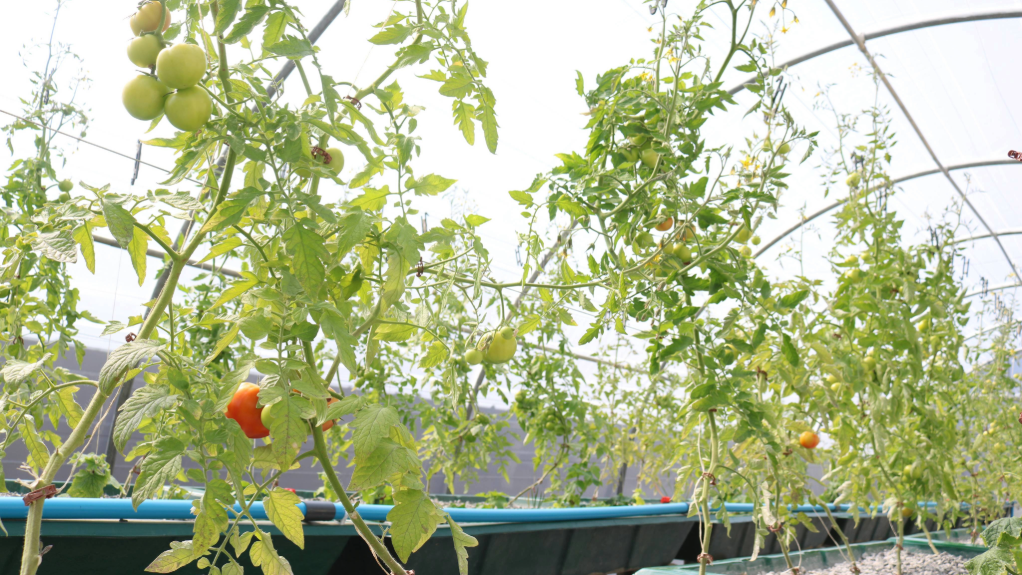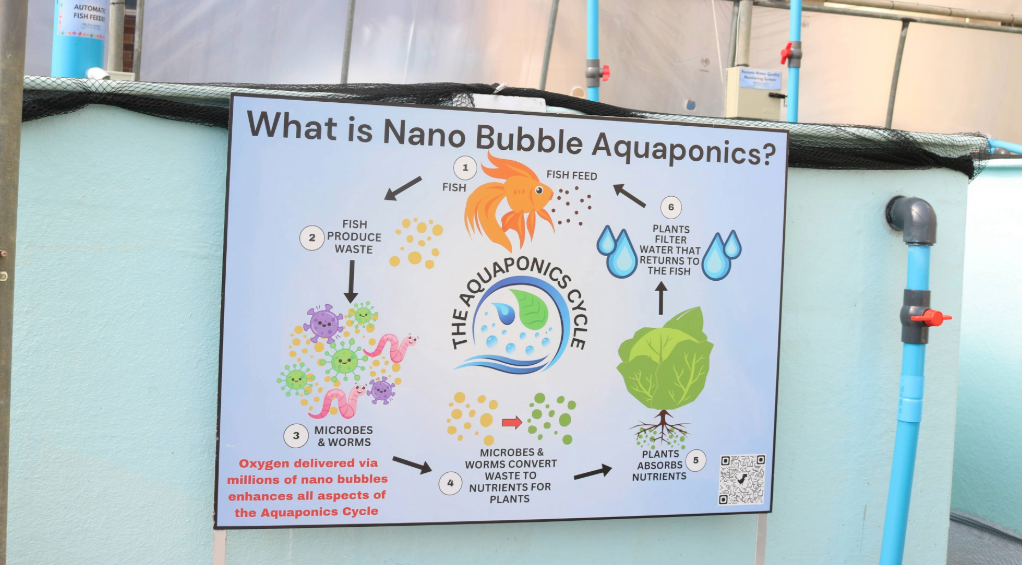Water treatment supplier Fine Bubble Technologies (FBT) is making significant strides in the agriculture and aquaculture sectors with its nano bubble system, enhancing water treatment efficiency and contributing to sustainable farming practices.
The system has innovative applications, with potential to address broader water treatment challenges, particularly in water-scarce regions of South Africa, says CEO Paul Botha.
FBT’s nano bubble system is designed to improve dissolved oxygen (DO) levels in aquaponics, a critical factor for the growth of fish and plants.
Traditional aeration methods often struggle to maintain stable DO levels, particularly in densely stocked systems, but FBT’s nano system generates 222-million bubbles per millilitres of water, while the bubbles – less than 100 nanometres in size – remain suspended in water for longer, dissolving more oxygen.
Consequently, the system enhances oxygen transfer efficiency to plant roots and fish gills, as well as nutrient delivery while reducing water use and nutrient discharge.
Beyond aquaponics, the technology can be applied in wastewater treatment plants and improving drinking water quality by reducing contaminants and harmful pathogens, Botha points out.
One of the flagship projects demonstrating this technology’s impact is the pilot plant at De Grendel School of Skills, in the Western Cape.
Funded by the Department of Science and Innovation through the Agriculture Bio-Innovation Partnership Programme, the project has reported a 50% increase in aquaponic yield. FBT plans to scale the project to other schools and communities.
Botha envisions a network of aquaponic systems across South Africa that not only provide fresh produce and fish but also serve as educational platforms for sustainable agriculture.
“By partnering with local governments, nongovernmental organisations and educational institutions, we aim to offer training programmes, support services and community engagement initiatives that will empower locals to build and maintain their own aquaponic systems,” he says.
Sustainable Farming
Traditional aquaponics systems often face challenges, such as low DO levels, poor nutrient circulation and susceptibility to diseases, all of which can reduce productivity.
The nano bubble system, however, ensures consistent oxygenation and nutrient distribution, leading to healthier plants and stronger fish. The system also promotes the growth of beneficial microbes, which assist in nutrient cycling and disease prevention, further boosting stability and yield.
“One of the key benefits of our technology is its ability to merge advanced nanotechnology with indigenous knowledge, creating systems that are not only efficient but also culturally relevant,” Botha adds.
By empowering local communities with this technology, FBT is promoting sustainable farming methods that can be easily adopted, leading to increased food security, job creation and economic growth, particularly in rural areas.
Botha says FBT, having recognised that high startup costs are a barrier for small-scale and subsistence farmers, has sought to address this hindrance.
“We’ve developed scalable and modular nano bubble systems that can be tailored to different sizes and budgets. By optimising the design and production process, we’ve lowered the initial costs, and the improved efficiency of our systems reduces operational costs, as it ensures lower energy consumption and reduced chemical inputs,” he explains.
Additionally, the company offers financing options and partnerships with local organisations to make the technology more accessible to smaller farmers.
FBT’s efforts have received significant support from institutional innovation entity Technology Innovation Agency, which has provided financial and technical support for the De Grendel project.
The pilot project aligns with South Africa’s Bioeconomy Strategy, which emphasises innovative and sustainable agricultural practices to enhance food security and create jobs.
By implementing our nano bubble systems, we can address agricultural and water treatment challenges, contributing to a more resilient and sustainable future,” Botha concludes.
Edited by: Nadine James
Features Deputy Editor
EMAIL THIS ARTICLE SAVE THIS ARTICLE
ARTICLE ENQUIRY
To subscribe email subscriptions@creamermedia.co.za or click here
To advertise email advertising@creamermedia.co.za or click here















